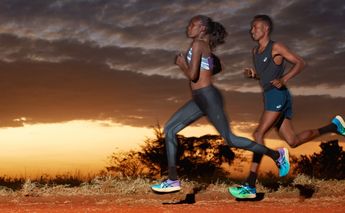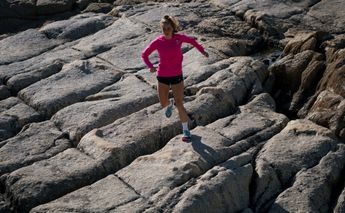Rest plays an important role in becoming a better runner. It allows your body to recuperate and get stronger after active training in a process known as overcompensation. MY ASICS plans integrate rest to produce an optimal training effect, resulting in a better race performance.
The relation between activity and rest
When we think about running we usually focus on the active training – the actual physical exertion. And we may think about stretching or diet, which we know to affect how well we exercise.
But rest is also part of your training. In fact, there is a direct connection between the amount of rest you take and how well you perform during exercise.
During each training session your body gets ‘damaged’. Rest, and especially sleep, allows your body time to repair this damage. This means that if you don’t take enough rest after training, your body cannot fully recuperate, leading to an ongoing weakening and deterioration of your body tissues.
Without resting, this process will result in a ‘plateau’ effect where you’re no longer capable of improving your performance. This is known as overtraining. At worst, you will develop an injury or become ill.
Overcompensation
But there is another reason why rest is crucial for athletes. When your body has fully repaired itself from training it doesn't stop there. In order to prepare for stresses in the future, it will become a little stronger than before. This process is called overcompensation.
Overcompensation is the physiological mechanism behind the training effect – it is how you get fitter and stronger.
This means that training is really a way to stimulate the mechanism of overcompensation in order to gradually improve your performance. You can see this effect in the graph, showing increasing fitness over time through overcompensation.

Aiding your body’s recovery
It is therefore of vital importance to give your body time to recover, as well as to get sufficient nutrition. The main nutrient your body uses to repair and build tissues is protein, so make sure your diet contains ample proteins. Lean red meat, chicken and fish are all rich sources of protein. Vegetarians should eat plenty of beans, lentils, nuts, quinoa, tempeh or tofu.
The ideal amount of rest or recovery varies from person to person, just as some people need more sleep than others. In general, however, scientists at the ASICS Institute of Sport Science advise runners to take at least one day of total rest per week.
MY ASICS training plans are built around overcompensation, creating an optimal balance between training and rest.
If you follow a MY ASICS plan, it is advisable to avoid doing any intensive sport activities on designated Rest days. This ensures that by the next training session you are fully recovered and have given your body to overcompensate.
For experienced athletes, running at a very low intensity acts as a form of active recovery. MY ASICS also uses this strategy by including jogging sessions. However, jogging is used in addition to rest, not instead of it.
Read more about jogging as active recovery
Rest and training tips
In sum, the effect of your running training depends on rest. To ensure you get enough rest and allow your body to benefit from overcompensation, make sure you:
- take a day of complete rest day at least once a week
- vary your running pace over the week, avoiding two consecutive days of hard training
- have a week of light training every two to three weeks
- eat enough protein
MY ASICS integrates rest for an optimal training effect. Start your training plan today!



